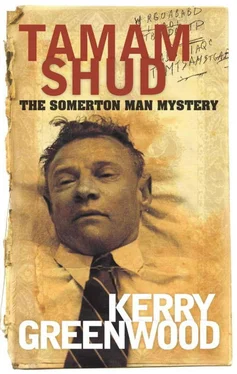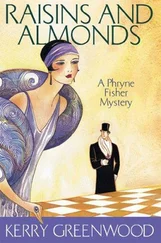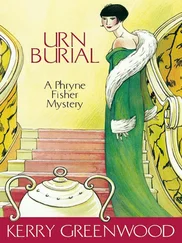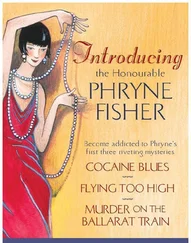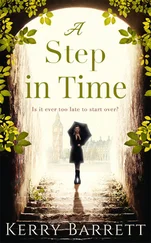Kerry Greenwood - Tamam Shud
Здесь есть возможность читать онлайн «Kerry Greenwood - Tamam Shud» весь текст электронной книги совершенно бесплатно (целиком полную версию без сокращений). В некоторых случаях можно слушать аудио, скачать через торрент в формате fb2 и присутствует краткое содержание. Город: Sydney, Год выпуска: 2012, ISBN: 2012, Издательство: NewSouth, Жанр: Детектив, Прочая документальная литература, на английском языке. Описание произведения, (предисловие) а так же отзывы посетителей доступны на портале библиотеки ЛибКат.
- Название:Tamam Shud
- Автор:
- Издательство:NewSouth
- Жанр:
- Год:2012
- Город:Sydney
- ISBN:978-1-742-23350-5
- Рейтинг книги:3 / 5. Голосов: 1
-
Избранное:Добавить в избранное
- Отзывы:
-
Ваша оценка:
- 60
- 1
- 2
- 3
- 4
- 5
Tamam Shud: краткое содержание, описание и аннотация
Предлагаем к чтению аннотацию, описание, краткое содержание или предисловие (зависит от того, что написал сам автор книги «Tamam Shud»). Если вы не нашли необходимую информацию о книге — напишите в комментариях, мы постараемся отыскать её.
Tamam Shud — читать онлайн бесплатно полную книгу (весь текст) целиком
Ниже представлен текст книги, разбитый по страницам. Система сохранения места последней прочитанной страницы, позволяет с удобством читать онлайн бесплатно книгу «Tamam Shud», без необходимости каждый раз заново искать на чём Вы остановились. Поставьте закладку, и сможете в любой момент перейти на страницу, на которой закончили чтение.
Интервал:
Закладка:
Balint sees Somerton Man as a wandering refugee, clad in anonymous second-hand clothes, rather than attributing his lack of labels to deliberate action. She points to a conversation the police had with ‘Mr Moss Keipitz, an Egyptian, employed in Adelaide’, who told the police investigation that Keane, the name on Somerton Man’s tie, could have been an Anglicisation of Keanic, which is a Czechoslovakian, Yugoslav or Baltic name. (My mother did think he looked Baltic.) However, Balint adds that since Somerton Man’s fingerprints were only sent to the United States and to other countries in the British Commonwealth, not to Eastern Bloc countries, there is no way to prove or disprove her theory. She observes that there are an infinite number of potential endings to the mystery, which is interesting and also true but not helpful.
One of my favourite theories is that Somerton Man was a time traveller, related to Teresa Powell because he was her great-great-grandson come back from the future, where clearly it is colder than here, hence the heavy garments. According to this theory, Somerton Man was waiting on the beach for the Mothership but he was killed by an acute reaction to some local allergen or a death ray from his enemies before he could be picked up. As one who read their first speculative fiction story at eight – a time travel story by Ray Bradbury called The Sound of Thunder , which scared the hell out of me – I love the idea. Both of the unidentified dead men found on Somerton Beach were inappropriately dressed for the weather in their current location but were they, perhaps, appropriately dressed for their ultimate destination – a colder future earth or a chilly day on Mars? The only trouble with this hypothesis is that time travel really is impossible. Much as I like the idea.
A similar degree of suspension of disbelief is required by the idea that Somerton Man was an alien/human hybrid. As a matter of fact, this theory requires that disbelief be not so much suspended as hung out of the window by its heels. I suspect that the theorists watched The X Files and thought it was fact. Still, it’s an attractive hypothesis, based on the fact, uncovered by Professor Abbott, that Somerton Man had some unusual genetic features – those odd teeth and strange ears. However, strange ears do not a Vulcan make, nor a fairy, werewolf, elf or supernatural personage of any sort. Despite what you may have read in Twilight . Despite the novels of Charlaine Harris. No, really. Srsly.
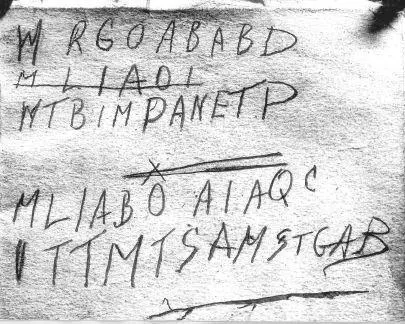
In the end, after all the theorising, Somerton Man remains an ambiguous figure. Was he on our side or on their side? Was he a good guy or a bad guy? Where did he come from, what was he doing there, how did he die? Only a novelist, I suggest, could possibly provide a solution, because every hypothesis put forward so far has had to ignore at least one of the facts, like the Marx brothers packing a suitcase by cutting off the bits which don’t fit. And my own solution is only a story, or rather, several stories; and I am a storyteller who draws inferences from many sources. We cannot really hope to solve this mystery now, even if we dig up poor Somerton Man and trace his blood relatives by their DNA or the shape of their ears.
When I asked my father to expand on the story of Somerton Man, he confessed that he knew no more. But then he said ‘It’s because it’s a mystery, see, little mate, stories where you know the solution, you forget about them. But if you don’t know – if you can’t know – well, they stick in your mind’.
And they do. It has stayed in my mind all these years.
Chapter Eight
But leave the Wise to wrangle, and with me
The Quarrel of the Universe let be:
And in some corner of the Hubbub coucht,
Make Game of that which makes as much of Thee.
Somerton Man is a mystery and he belongs much more now to fiction than to fact – to my father’s domain, rather than my mother’s. But fact should never be abandoned when it is available. When I turned to the newspapers to find out what else was happening in 1948, I read them all and then woke from sleep with a catchcry in my ears: ‘Arms for Israel’.
I first heard that slogan as a child, in relation to the 1967 Six Day War but, of course, the State of Israel was established in 1948 – on 14 May, to be precise. My parents and their old friends Maxie and Shula sat round the radio waiting for the count in the United Nations. They held their breath. They cheered when our representative, Herbert Evatt, said that Australia voted yes. Then England, who had tried so hard to stop the exodus from the concentration camps to Eretz Israel, abstained.
But the State of Israel was proclaimed as soon as the British mandate ended, which was the signal for immediate attack by just about everybody in the Middle East. ‘Drive the Jews into the sea!’ they cried – Egypt and Syria and Jordan and the others, all with Russian armaments and other weapons they had been sold, despite the arms embargo which prevented everyone from legally selling arms to Israel.
When I was a young woman I met an old lady called Rachel, who was a sweet grandma in a pink fuzzy cashmere jumper with jingly pearls around her neck. She was knitting as she told me how she had held out with forty other fighters at a kibbutz on the Jerusalem road. They had fought for their sisters and their children and their goats, all hiding in the basement behind them. A survivor of the Warsaw Ghetto had sneaked out at night and used a Molotov cocktail to blow up a tank and block the road, so the human waves could be picked off as they climbed and fell. Out of forty fighters, seventeen had died but they had bravely held up the advance of the Egyptian army for more than twenty days. Clearly, the Egyptians did not know how to use all those nifty field guns that the Russians had donated; one of them would have wiped all the kibbutz’s resistance.
After the Israeli army came and liberated them, she asked how long they had been fighting, and was amazed to find it was weeks. She had utterly lost count of time. When she looked in a mirror and saw the haunted eyes, the singed hair, the lost eyebrows and the sooty tattooing from the back blast of the Sten on her face, she did not know herself. And she slid to the floor and slept for twelve hours. Then she woke up, washed her face, and slept again, because the Egyptians had retreated and the kibbutz was safe. For the moment.
I asked, ‘Didn’t you feel terrible, killing them all with your Sten gun?’ and Rachel said, ‘Of course, I can still see every one of their faces in my mind. But we would never surrender Israel, just die in her defence, so better take as many enemies with us, nu?’
And she kept knitting. I don’t think I have ever been so disconcerted. I knew about soldiers but Frau Rachel M was something different. That sort of resistance went against the long-held Arab belief that Jews were cowards, which came about because Jews were not allowed to carry arms or serve in Muslim armies, paying a hefty tax for their exemption. In fact, the entire concept of Jewish cowardice was white-anted and the Jews suddenly became cruel oppressors, literally overnight.
Given later political developments, it is hard to envisage 1948 and remember how very alone Israel was, how tiny, how oppressed and powerless – and how very close 1948 was to the time of those films of the liberation of the concentration camps which my mother saw at the cinema. The British filmed the liberation of Bergen Belsen because they had an acute historical sense and they didn’t want anyone to be able to say that it hadn’t happened (which hasn’t stopped the Holocaust deniers). But it did happen. I have spoken to people who were there as prisoners, and to Dennis Pryor, who was a member of a forlorn Friends Ambulance unit, with their five blankets and their packets of aspirin and bottle of iodine, trundling along through the shattered gates into hell.
Читать дальшеИнтервал:
Закладка:
Похожие книги на «Tamam Shud»
Представляем Вашему вниманию похожие книги на «Tamam Shud» списком для выбора. Мы отобрали схожую по названию и смыслу литературу в надежде предоставить читателям больше вариантов отыскать новые, интересные, ещё непрочитанные произведения.
Обсуждение, отзывы о книге «Tamam Shud» и просто собственные мнения читателей. Оставьте ваши комментарии, напишите, что Вы думаете о произведении, его смысле или главных героях. Укажите что конкретно понравилось, а что нет, и почему Вы так считаете.
